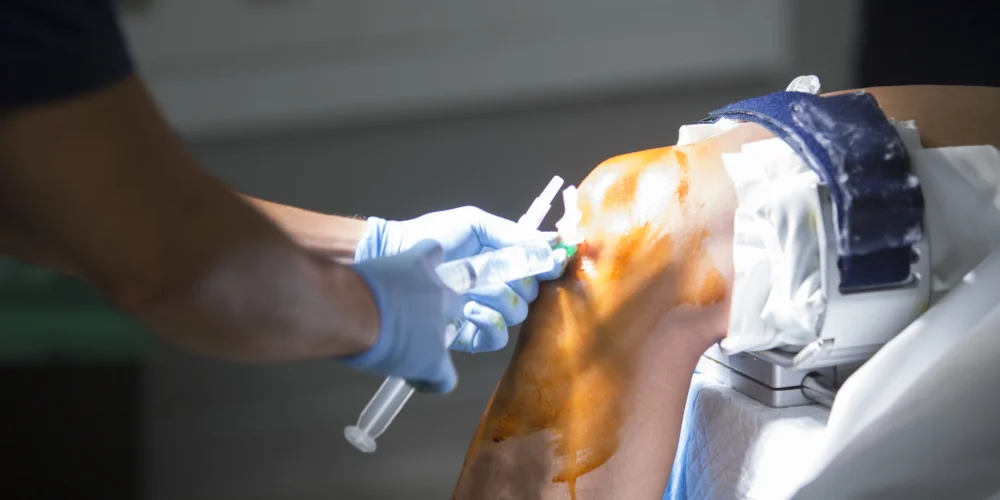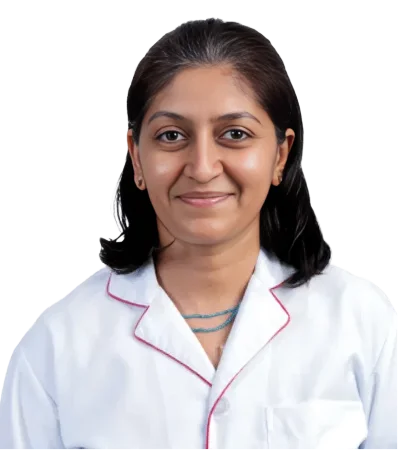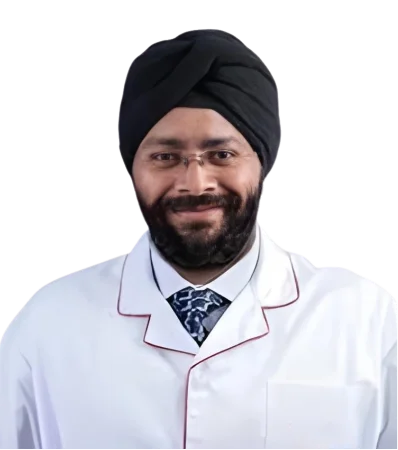Arthroscopy Surgery
Effective Diagnosis and Treatment of Joint Issues with Arthroscopy Surgery
Arthroscopy surgery is a minimally invasive technique used to diagnose and treat various joint conditions. At Chirayu Super Speciality Hospital, our skilled orthopedic surgeons use cutting-edge arthroscopic techniques to deliver accurate diagnoses and effective treatments for knee, shoulder, hip, and other joint ailments. Our goal is to enhance joint function while relieving pain quickly so you can return to daily activities as soon as possible.

What Is Arthroscopy Surgery?
Arthroscopy surgery allows doctors to view the inside of a joint using a special camera known as an arthroscope, inserted through a small incision and mounted to a monitor for an in-depth view. ACL allows doctors to diagnose joint issues such as tears, inflammation or damaged cartilage using this noninvasive process, and treat these conditions using specially-designed instruments. Compared with open surgery methods such as this one, ACL generally offers less pain relief, faster recovery times, and minimal scarring potential compared with traditional open surgery methods.
Who Performs Your Surgery?
Chirayu Super Speciality Hospital’s Arthroscopy surgeries are conducted by highly-skilled orthopedic surgeons with experience in minimally invasive joint procedures, who utilize cutting-edge arthroscopic techniques for accurate diagnosis and treatment. Our surgical team works collaboratively with you throughout your journey towards providing personalized care with the aim of reaching optimal outcomes.
Arthroscopy Surgery Comes in Two Varieties
- Knee Arthroscopy : Used to diagnose and treat knee conditions such as meniscal tears, ligament injuries (such as ACL injuries) or cartilage damage.
- Shoulder Arthroscopy : Addresses shoulder issues such as rotator cuff tears, impingement syndrome or instability.
- Hip Arthroscopy : Used to diagnose and treat hip labral tears, cartilage damage and impingement disorders.
- Wrist Arthroscopy : Allows physicians to effectively detect and treat wrist conditions such as ligament tears or injuries caused by ruptures to cartilage structures in the wrist joint.
Symptoms Suggesting the Need for Arthroscopy
Signs that indicate the need for ACL include persistent joint pain, swelling, stiffness, limited range of motion and instability in joints. If conservative treatments such as medication, physical therapy or injections do not alleviate these symptoms then an ACL procedure may be recommended in order to diagnose and treat its source.
Diagnosis for Arthroscopy Surgery
The diagnostic process for ACL requires a comprehensive assessment, including reviewing your medical history, conducting physical exams, imaging studies such as X-rays, MRI or CT scans as well as other forms of testing like blood cultures or magnetic resonance imaging (MRI) scans and ultrasound exams. If these methods do not provide clear answers or need more investigation then ACL may be performed to get a closer view of your joints and accurately diagnose any potential issues that arise.
Treatment Process
Arthroscopy procedures typically start with making a small incision near a joint to insert an arthroscope camera and monitor for viewing images on its monitor, providing surgeons with access to inspect its interior. Additional small incisions may be made if additional instruments need to be introduced such as trimming or repairing damaged tissues, although most surgeries are conducted as outpatient services, so patients can go home on the same day.
Care and Recover From Surgery
Arthroscopic surgery recovery tends to be quicker than open surgery. Patients may experience some mild pain and swelling that can be managed with medication and rest. Physical therapy may be recommended in order to restore strength, mobility, and function back into affected joints. Most people can return to regular activities within weeks; full recovery may take several months depending on its complexity and the joint involved.
Advantages of Choosing Our Surgery Services
Minimally Invasive Approach
Arthroscopic procedures for joint issues minimize scarring and promote faster healing.
Expert Care Team
Surgeons with extensive experience in diagnosing and treating joint problems using arthroscopy.
Quick Recovery
Patients typically experience less pain and faster recovery times, allowing a quick return to daily activities.
What Our Patients Say
Read about our patients positive experiences and how Chirayu Super Speciality Hospital has positively impacted their health and well-being.


The shoulder arthroscopy I had at Chirayu was effective in treating my rotator cuff tear. I’m pain-free and grateful.


After my knee arthroscopy, I regained full mobility. The entire process was smooth, and the results were fantastic.


The orthopedic team at Chirayu Hospital performed my shoulder arthroscopy with precision. The care and expertise were outstanding.


My knee arthroscopy was a success. The recovery was quick, and I was back on my feet in no time.
Meet Our Medical Specialists
Our orthopedic surgeons specialize in minimally invasive arthroscopy, offering advanced diagnosis and treatment for a wide range of joint issues.
Frequently Asked Questions
Here, we provide answers to some of the most commonly asked questions to help you better understand about our surgery services. If you have any additional questions, please do not hesitate to contact us.
Commonly treated joints include the knee, shoulder, hip, and wrist, but arthroscopy can also be used on other joints as needed.
Benefits include smaller incisions, less pain, quicker recovery, reduced risk of infection, and minimal scarring.
Arthroscopy is a minimally invasive procedure that uses a small camera to diagnose and treat joint problems, reducing recovery time and scarring.
Arthroscopy typically takes about 30 minutes to 2 hours, depending on the joint and the complexity of the condition being treated.
If you have persistent joint pain, swelling, or instability that does not respond to conservative treatments, arthroscopy may be recommended.



